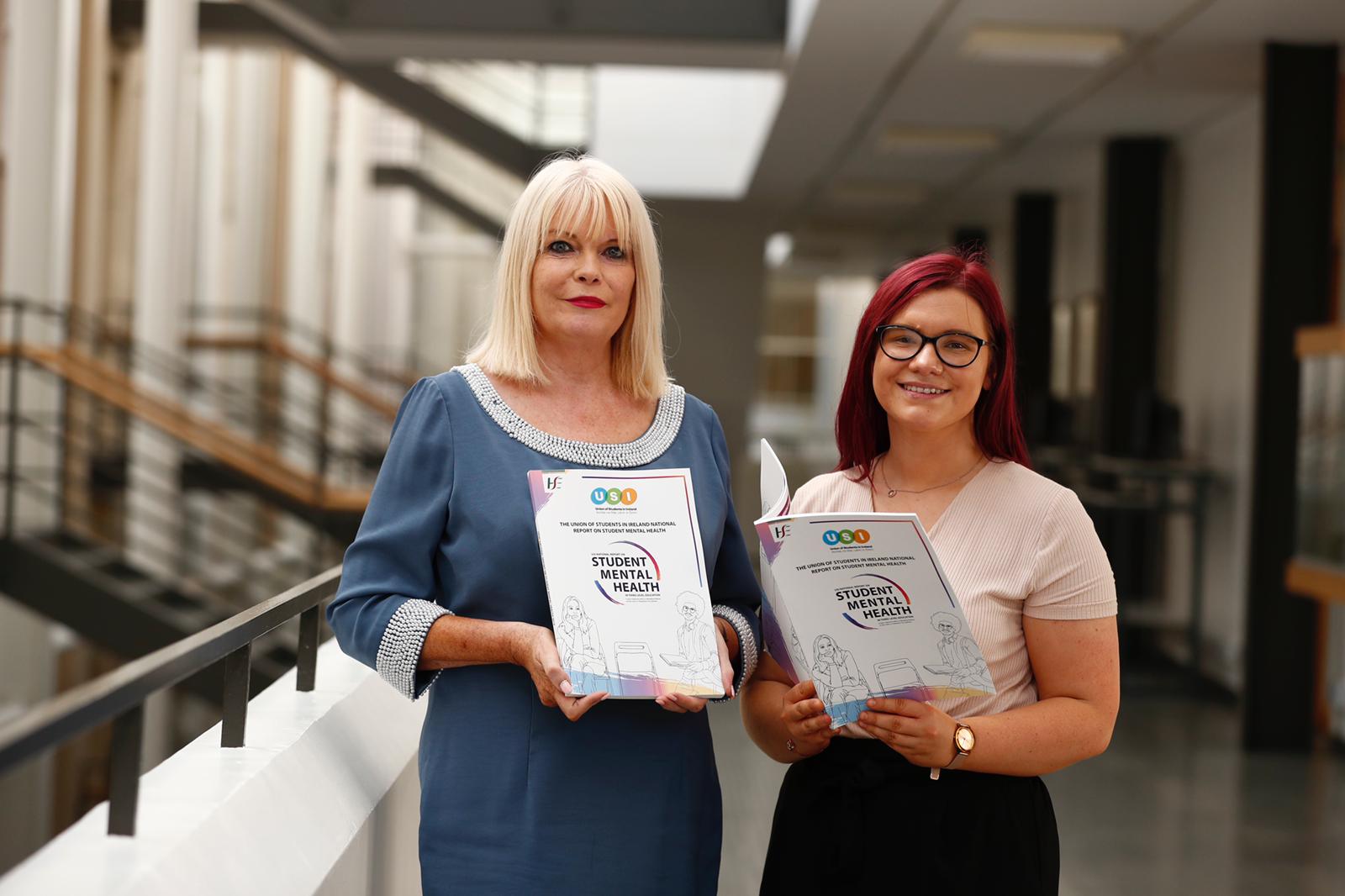38% of third level students in Ireland are experiencing extremely severe levels of anxiety according to a report published this morning by the Union of Students in Ireland (USI).
The report suggests that a significant proportion of students in third level education struggle with mental health difficulties, with many students reporting extremely severe symptoms. The report suggests that a further 30% of students are extremely severely depressed, while 17% experience extremely severe levels of stress.
This study is the first of its kind with the authors stating that it proves what was only known anecdotally before.
The report is based on an extensive survey of students that received over 3,000 respondents from across the island of Ireland. The survey was carried out by USI and funded by the Health Service Executive.
In addition to findings on the number of students experiencing various symptoms of mental health difficulties, the report revealed that 32% of students have received a formal diagnosis of a mental health difficulty at some point in their lives.
The report was presented at an event held in Trinity this morning by USI President Lorna Fitzpatrick, alongside the Minister of State for Higher Education, Mary Mitchell O’Connor.
Fitzpatrick thanked students for sharing “their most inner thoughts and emotions” for the survey. She stated: “It is of paramount importance that students are listened to when it comes to their health and well-being and this study gives each reader the chance to hear exactly what students have to say.”
She added that “the findings are clear, students need better services now more than ever”.
Mitchell O’Connor stated that the report provides “very valuable information for future mental health and wellbeing policy”.
“We need to adapt our approach as policy makers to provide help and support as our awareness and understanding of the issues improves,” she said
Mitchell O’Connor added that the report “is a major step to address both services and attitudes towards mental health”.
The minister also called on Higher Education Institutions (HEIs) to take on board the findings of the report, stating: “The health of any HEI is inherently linked to the health of its individuals” and that HEIs have a “vital role in providing a protective environment for their students”.
The report found that students were accessing support services for their mental health difficulties both on and off campus as well as relying on their friends and peers. However, one fifth of students reported having nobody to talk to about their emotional and personal difficulties, which the report highlighted as a major concern.
Of those who did access support services on campus, 55% rated finding the services either helpful or very helpful. 65% of students had to wait either two weeks or less to get an appointment with the on-campus counselling service. 4% reported having to wait more than eight weeks to receive an appointment.
USI are calling for an audit of all support services due to what they describe as “wide discrepancies” in the level of care.
A recurring issue with support services that the report highlights was counsellors focusing on a student’s sexuality or gender identity rather than their mental health difficulties. One student told the survey: “The person I saw focused on my sexual orientation and not the problem I presented, thus I refused to return.” Another said: “I had a homophobic counsellor who made inappropriate comments about my sexual orientation.”
Most students who took the survey were female (73%), followed by male (25%). Only a very small proportion of those who took the survey identified as non-binary (2%), however this group had the highest levels of extremely severe symptoms. 61% of non-binary students reported extremly severe mental health symptoms.
LGBT+ students and students with disabilities were more likely to have mental health problems, according to the report’s findings.
The report would suggest that the ongoing student accommodation crisis in Ireland is negatively impacting students’ mental health. 78% of students without stable accommodation reported extremely severe depression.
The study also examined the impact of social media on mental health, however it did not reach a clear conclusion on this topic, as there were around the same number of students who said it had a negative impact on their mental health as those who said it had a positive impact on their mental health.
Trinity College Dublin Students’ Union (TCDSU) Welfare Officer Aisling Leen told Trinity News that she hoped the report “will lead to improvements in the services and increased investment in mental health services for third level students”.
Leen highlighted that one of the findings of the report was that a free, on-campus counselling service was valued by students. She stated: “We are lucky to have such a high quality service of counselling available in Trinity for all students. I hope that the findings of this report highlight the importance of this service to the college and investment will benefit both the students who use this service, but also the staff who provide it.”
TCDSU President Laura Beston added that the report “supports us in saying that we need more funding” for the counselling service within Trinity. She noted that the staff of these services were under an immense amount of pressure to work through the long waiting lists.






